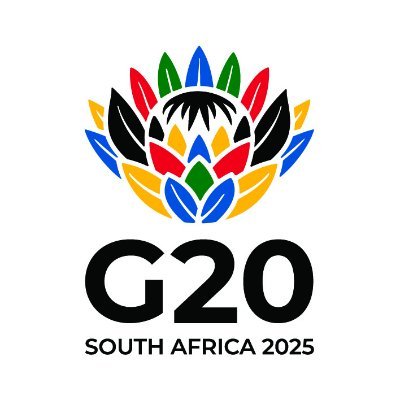G20 Employment Working Group Meets in George to Tackle Global Labour Inequality
The meeting is part of South Africa’s presidency of the G20 for 2024, under the broader national theme of “Solidarity, Equality, Sustainability.”

- Country:
- South Africa
The 4th G20 Employment Working Group (EWG) Meeting commenced today in the scenic town of George, marking a pivotal moment in the ongoing efforts to address pressing global labour market challenges. This two-day meeting of technical experts, convened under the theme “Living and Working in an Unequal World: Ensuring Decent Work and Decent Lives,” sets the stage for critical deliberations on the future of work and equity in employment.
The meeting is part of South Africa’s presidency of the G20 for 2024, under the broader national theme of “Solidarity, Equality, Sustainability.” It precedes the Labour and Employment Ministers’ Meeting (LEMM), scheduled for 30–31 July 2024, also to be held in George. Together, these sessions will feed into the development of a Ministerial Declaration that outlines shared commitments and policy directions to ensure job-rich, inclusive growth across G20 member nations.
High-Stakes Talks Amid Global Uncertainty
This year’s G20 EWG meeting takes place against a backdrop of heightened economic and geopolitical uncertainty. Trends such as rising protectionism, anti-globalisation sentiment, and technological disruption have intensified concerns over labour inequality, stagnating wages, and access to decent work—issues that will be central to the discussions.
According to the South African Department of Employment and Labour, this 4th EWG session is set to focus on five core policy themes:
-
Youth Employment: Tackling growing youth unemployment rates through skills development, apprenticeships, and targeted employment schemes.
-
Gender Equality in the Workforce: Advancing efforts to close the gender pay gap and promote female leadership in labour markets.
-
Social Protection and Platform Work: Examining the rise of gig and digital platform economies and the implications for social security systems.
-
Labour Income Share and Inequality: Reversing the global trend of declining labour income as a share of GDP and promoting fair wage policies.
-
Inclusive Labour Market Institutions: Strengthening labour rights, worker representation, and access to benefits.
Roadmap to the LEMM Declaration
Outcomes from the technical deliberations of the EWG will directly shape the Labour and Employment Ministers’ Declaration, which is expected to outline collective goals for promoting decent work, reducing labour market inequalities, and ensuring inclusive growth across G20 countries.
The 2024 declaration will build upon the progress of previous G20 initiatives, particularly the Brisbane (2025) to eThekwini (2030) Goal, which seeks to advance gender parity in labour force participation and leadership roles. It is also expected to reflect South Africa’s domestic priorities on social justice, youth empowerment, and reducing economic disparity.
“The declaration is also expected to build on the Brisbane to eThekwini Goal to address gender equality in the workforce,” the department said in a statement.
International Representation and Multilateral Dialogue
The G20 EWG and LEMM meetings are expected to host over 150 high-level delegates, including Ministers of Labour and Employment from G20 member states, invited partner countries, and representatives from leading international organisations such as:
-
International Labour Organization (ILO)
-
Organisation for Economic Co-operation and Development (OECD)
-
United Nations Development Programme (UNDP)
-
World Bank Group
-
International Monetary Fund (IMF)
This collaborative format fosters knowledge sharing, comparative policy learning, and consensus-building on best practices for inclusive labour policy development.
South Africa’s Leadership in G20 Employment Agenda
South Africa’s presidency of the G20 in 2024 is a landmark moment, particularly with its advocacy for stronger ties between the G20 and the African Union, which now holds full membership. The nation has used its platform to elevate issues central to the Global South, including social protection floors, informal sector integration, and youth transitions from education to employment.
Through the EWG and LEMM platforms, South Africa is reinforcing its call for an equitable global labour framework—one that acknowledges historical imbalances and works towards fair opportunities for all.
“The G20 EWG’s mandate is to address labour, employment and social issues for strong, sustainable, balanced and job-rich growth for all,” said the Department of Employment and Labour.
G20: A Global Platform for Coordinated Action
Established in 1999 following a series of global financial crises, the Group of Twenty (G20) is the premier forum for international economic cooperation. It brings together the world's largest and most influential economies to coordinate policies that drive global economic stability, financial regulations, sustainable development, and inclusive growth.
G20 member countries include: Argentina, Australia, Brazil, Canada, China, France, Germany, India, Indonesia, Italy, Japan, Mexico, Russia, Saudi Arabia, South Africa, South Korea, Turkey, the United Kingdom, the United States, the European Union, and now officially, the African Union.
Looking Ahead
The declaration emerging from this year’s EWG and LEMM meetings in George is anticipated to set the tone for labour market reforms, global social protection coordination, and inclusive economic recovery strategies for years to come. As the host country, South Africa is expected to play a leading role in ensuring that the voices of developing nations are included and that the commitments made translate into meaningful global change.
ALSO READ
UAE Champions Women Empowerment and Gender Equality at UN Forum
UN Women and EESC Seal Global Pact to Advance Gender Equality at HLPF 2025
India and UK Pave New Path with Trade and Gender Equality Chapter
BARMM Finalizes Bangsamoro Labor Code to Promote Decent Work and Peace
2025 UN Declaration Elevates Gender Equality as Core to SDG Achievement










